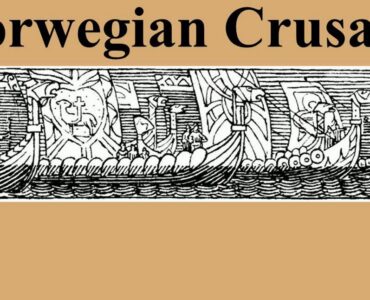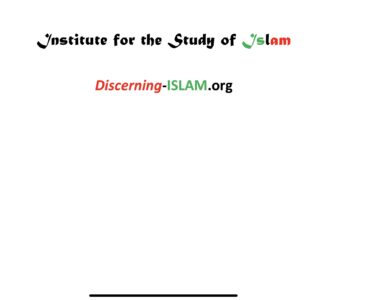
Recep Tayyip Erdoğan
Recep Tayyip Erdoğan (b. 1954) is a Turkish politician. Few prime ministers have had a greater impact on Turkish political life than Tayyip Erdoğan. Assuming office after a long and tortuous legal struggle and exclusion by the establishment, Erdoğan presided over the key legislative process of fulfillment of the Copenhagen criteria (required by the European Union for EU membership), the revolutionary legal changes that dramatically altered the balance of power between the military and civilian government, and the creation of a new economic structure with foreign investment that has been reshaping Turkeyʾs political landscape. He further deepened Turkeyʾs ties with the EU and sought to introduce a new political language.
Erdoğan grew up in one of the poorest neighborhoods of Istanbul and entered politics as an Islamist youth leader for the National Salvation Party of Necmettin Erbakan. He always retained a religious conviction that Islam is the source of personal identity and that the Turkish state is too ideological and needs to be transformed. He believed that the government should have a limited role in the economy and that the market is the cure for the countryʾs major problems. Erdoğan rose to political prominence by establishing close ties with Erbakan and with powerful conservative Islamic orders such as the Nakşibendis and Nurcus (followers of Said Nursi). A man of enormous energy, Erdoğan strikes many as aggressive, vain, and power-hungry.
Erdoğanʾs personality has been shaped by four character-building environments:
- The Kasımpaşa neighborhood of Istanbul;
- The religiously conservative imam-hatip school system (secondary education system to train preachers);
- The ethnoreligious Milli Türk Talebe Birliği (Nationalist Turkish Student Association) student union; and,
- The National Salvation Party of Erbakan.
Moreover, his experience as mayor and his period of imprisonment has shaped his policies as prime minister since 2003. He was born in Potamya (Güneysu) in Rize on the Black Sea coast, but his family moved to Kasımpaşa when he was thirteen years old. He is the youngest of five children. His father, the captain of a ferryboat, was a religious and harsh man, even abusive, and a strict disciplinarian. In his memoirs, Erdoğan relates that his father once punished him for swearing by hanging him by his arms from the ceiling. This harsh discipline shaped his early childhood.
The Kasımpaşa neighborhood has a strong conservative moral ethos with a deep sense of solidarity among its poor inhabitants. Erdoğan received his religious education in the neighborhood mosqueʾs summer school. He was active in sports and played professional soccer for sixteen years, juggling this with school and political activism. For years he kept his soccer career a secret from his father, who did not approve. The sport taught him the value of teamwork and of constant movement to take new positions. In politics as well, he stresses the role of teamwork — as long as he is the coach. In Kasımpaşa he attended an imam-hatip school, where he studied Islamic sciences along with the regular curriculum. His political identity, which is much influenced by his religious upbringing, is grounded in this school system. Erdoğan credits his religious education for all that he is today. In the imam-hatip school, he learned how to recite poetry, especially religious and nationalist verses.
Erdoğan was an average student in high school, but he was admitted to Marmara University in Istanbul to study economics and commerce, graduating with a BA in business management in 1981. He has never learned a foreign language. After graduation, Erdoğan started working for the Istanbul public transport authority. During this period, he was involved in politics and even named his son Necmettin after his political hero, Erbakan. When his director asked him to shave his beard, he refused out of religious conviction. After the September 1980 military coup, he gave up soccer and left to work in the private sector, before serving his mandatory military service in 1982 as a commissioned officer.
The fourth major formative influence on Erdoğan was his work in the National Salvation Party as the head of the party youth branch in Istanbul until the military coup of September 12, 1980, and then in Erbakanʾs Welfare (Ref âh) Party. He became the president of the Beyoğlu (Istanbul) branch of Ref âh in 1984 when he was thirty-one years old. In the 1989 local elections, he was the Ref âh mayoral candidate in the cosmopolitan Beyoğlu district. His campaign focused on all sectors of life. Indeed, he narrowly lost the election, and this contributed to his popularity both within Ref âh and Turkey.
Because of Erdoğanʾs openness, his diverse election strategies, and unquestioned loyalty to Erbakan, he became the Ref âh nominee for Istanbul mayor in 1994. As a result of these municipal elections, Ref âh became the voice of the periphery and paid close attention to the needs of average Turks. Due to his socialization and life style, ordinary Turks were able to identify with Erdoğan. As mayor of Istanbul, he sought to consolidate Islamic identity by resurrecting the Ottoman memory through several initiatives. He not only refurbished ruined Ottoman architectural sites but also turned the anniversary of the 1453 conquest of Istanbul into a major cultural event. His model was not Republican taste and practice but rather Ottoman rituals. For him, the Ottomans were an alternative memory and worldview to the Republic.
By stressing his piety and using religious language in public debate, Erdoğan became the “liberator” and a “banner” of the rising Islamic movement. Beneath the public display of religiosity and commitment to democracy runs an undercurrent of hunger for ownership and authoritarianism to “rule” rather than “govern” the party and the country. For Erdoğan, Islam is a source of identity, a network of social mobility, and a form of spiritual capital that could be invested in the political domain. Despite the widely held view that Erdoğan is religious, he has implemented few policies shaped by an Islamic conception of justice. The major weakness of his administration is the widespread corruption around him and in his government. He has never managed to achieve a reconciliation with the Atatürkists or the leftists, let alone to heal the secular-vs.-Islamic division. He does not have the passion for the serious deliberation required to build consensus.
Recep Tayyip Erdogan
725 – 003
Last Updated: 12/2021
Copyright © 2017-2021 Institute for the Study of Islam (ISI) | Institute-for-the-study-of-Islam-org | Discerning Islam | Discerning-Islam.org | Commentaries on Islam | © 2020-2021 Tips Of The Iceberg | © 1978, 1990, 2000 marketplace-values.org | Values In The Marketplace | are considered “Trade Marks and Trade Names” ®️ by the Oklahoma Secretary of State. All Rights Reserved.



